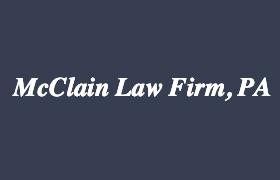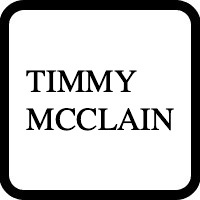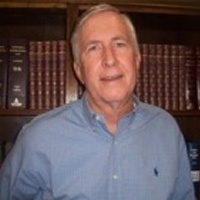 Howey In The Hills Estate Lawyers, Florida
Howey In The Hills Estate Lawyers, Florida
Sponsored Law Firm
-
 x
x

Click For More Info:
-
McClain Law Firm, PA
P.O. Box 536387 Orlando, FL 32853» view mapEstate Law A Law Firm That Cares
Let McClain Law Firm, PA handle all your Estate Planning needs today!
800-908-6270
Sponsored Lawyers
1-10 of 15 matches
Estate, Landlord-Tenant, Wills & Probate, Trusts
At Cauthen, Oldham & Associates, P.A., we have been helping people with a wide variety of legal issues since 1972. Attorney David E. Cauthen formerly served as an Assistant State Attorney and as a City Attorney for Umatilla. Serving in those roles and the decades he has spent helping people has taught him how to build highly effective cases. He uses his experience to create tailored solutions that truly help his clients through the most difficult and complex situations. Attorney David E. Cauthen understands how life-changing the consequences of these cases can be. With more than 40 years of experience, you can be confident in how he handles your case. He has extensive experience and knowledge in a number of practice areas. He will bring this expertise to any negotiating table or courtroom and advocate for you at every step. With Mr. Cauthen on your side, your case will have the best chance for success. Hiring a lawyer like Mr. Cauthen is the first step to success in your legal situation. Schedule a consultation with us today, and we can guarantee reasonable rates, personalized solutions and constant accessibility.
(more)Divorce & Family Law, Bankruptcy & Debt, Estate, Real Estate, Litigation
Shipley Law Firm & Title Company is pleased to provide the highest quality, professional legal services for clients in Lake County and throughout central Florida. The firm's attorneys are experienced in representing individuals and businesses in the areas of bankruptcy law, business and corporate law, civil litigation, family law, wills, trusts and estate planning, probate, and real estate law (including real estate closings and title insurance). Our firm offers comprehensive analyses of all debt relief and debt workout options including skilled and cost-effective legal representation in all types of Chapter 7, Chapter 13, and Chapter 11 bankruptcy law matters. We are dedicated to finding the best possible financial solution for our clients, which financial solution may or may not include bankruptcy. If you need legal assistance with a business and corporate law or civil litigation matter, Shipley Law Firm & Title Company can help. The firm has for many years represented clients in matters involving business formation, commercial lease agreements, and the purchase and sale of businesses and real estate. We also represent clients in business and corporate disputes involving breach of contract, unfair competition, fraud, landlord-tenant issues and employment. Whenever possible, we try to resolve disputes through alternative dispute resolution to avoid the time and expense of trial. However, when necessary we will aggressively defend your interests in litigation. Shipley Law Firm & Title Company provides legal services related to wills, trusts and estate planning to ensure peace of mind for you and your loved ones. Our firm can draft and reviewing wills and trust documents as well as identify and implement asset protection strategies for Medicaid, to minimize estate and probate taxes, and plan for potential creditor's claims. At Shipley Law Firm & Title Company, we provide family law services related to adoption, dissolution of marriage/divorce, child custody, child support, post-dissolution modifications, spousal support/alimony, and ante-nuptial/prenuptial and post-nuptial agreements. We guide prospective adoptive parents through the complicated Florida adoption process and help file the necessary paperwork with the court. Our firm also guides clients through the difficult legal process of divorce and assists with the drafting and review of ante-nuptial/prenuptial and post-nuptial agreements. Shipley Law Firm & Title Company has also successfully represented clients in a variety of real estate matters related to closings, title insurance, easement disputes, title insurance claims, deed restrictions, enforcing real estate contracts, evictions and landlord-tenant litigation, homeowners associations, foreclosures, boundary disputes and quiet title actions. Mr. Shipley received both a Master's Degree in Business Administration (M.B.A.) concentrating in Entrepreneurship and a Juris Doctor (J.D.) degree from Florida State University. He is also licensed as a Florida Certified Public Accountant and is a member of many professional organizations, including the American Bar Association, the American Institute of Certified Public Accountants, the Florida Institute of Certified Public Accountants, REALTORS® Association of Lake & Sumter Counties, Inc., the Lake County and Orange County Bar Associations, National Association of Consumer Bankruptcy Attorneys and the Central Florida Bankruptcy Law Association. Mr. Shipley also served in the United States Army Reserve for eight years and was on active wartime duty during the Persian Gulf War.
(more)



 Timmy McClain Orlando, FL
Timmy McClain Orlando, FL AboutMcClain Law Firm, PA
AboutMcClain Law Firm, PA


